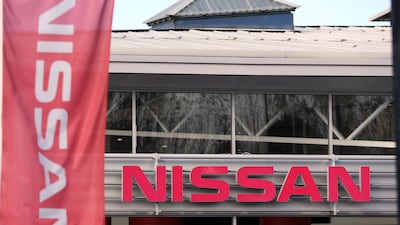Japanese car maker Nissan is planning on introducing new models in the Arab world and increasing capacity at its local factories as part of a bid to secure the largest market share in Egypt and Gulf nations.
The company plans to increase its market share to more than 20 per cent by 2022 in the Arabian Gulf and in Egypt, from 16 per cent and 15 per cent, respectively, said Peyman Kargar, chairman of Nissan in Africa, the Middle East and India. The company is currently number three in Egypt and second in the Gulf.
“We want to double our industrial footprint in the Middle East, Africa and India by 2022,” said Mr Kargar, adding that Nissan is looking to boost its production facilities in the region to more than six. It presently has three factories in Egypt, India and South Africa, and wants to add one in Pakistan and another in Algeria. Others would come later, he said.
Egypt, with a population of around 100 million, is considered a strategic market for Nissan, according to Mr Kargar. The car maker has invested $200 million in the country since it began operating there in 2005, he said. More investments are planned in the company’s fiscal year starting in April, and Nissan wants to bring its Egypt plant to full capacity of 28,000 vehicles per year, compared with the current level of 22,000.
While the company’s Egypt outlook is optimistic, Mr Kargar said the government’s decision to exempt imported cars from the European Union from customs duties is a challenge in the short and medium term.
Yokohama, Japan-based Nissan had “very positive” discussions with the government regarding this issue, he said. “We asked them to support the local industry to be able to compete, to not put us in a less competitive situation,” Mr Kargar said.
Among the proposals made was exempting imported parts from customs duties. “I’m pretty sure they will take some decisions soon,” said Mr Kargar , referring to the government.

